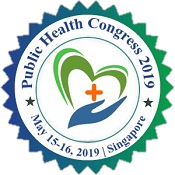
Zoobi Khanam
Banaras Hindu University, India
Title: Energy Balance of Indian Rural Women determined by their Activity Based Energy Cost: A Cross-Sectional Study
Biography
Biography: Zoobi Khanam
Abstract
Caloric requirements above basal levels are directly dependent on the degree of activity. Activity thus becomes a very significant factor in determining the caloric adequacy of the marginal diets consumed by many individuals in technically under developed countries. Present study has examined the situation of energy expenditure and energy balance in women of reproductive age group. This study was conducted in rural areas of Varanasi district of Uttar Pradesh state, India. A community based cross sectional design was adopted. By multi stage sampling 610 women of reproductive age group (15-49 years) were interviewed with the help of a pre-designed and pre-tested schedule. Dietary intake and energy expenditure were calculated by using 24-hour dietary recall and activities performed by study subjects in previous 24 hours were recorded. Data was analyzed with the help of SPSS software.
The findings of this study revealed that as much as 67.4% study subjects were in Negative Energy Balance and 32.6% had Positive Energy Balance. The overall Energy Expenditure for study subjects was 1943.05 ±553.24 Kcal/day. There existed significant association between energy expenditure of the subjects and their age, type of family, educational status and socio-economic class (p<0.001). Negative Energy Balance was to the extent of 65.3%, 64.7% 76.8% and 56.8% in the age group of 15-24, 25-34, 35-44 and ≥45 years, respectively. This was maximum (73.8%) in illiterate and least (58.5%) in subjects with educational status as graduate and above. As much as 69.4% lower, 81.9% lower middle and 72% middle Socio-economic Status subjects had Negative Energy Balance. Since Negative Energy Balance in women of reproductive age prevailed in two third subjects and average calorie intake of the subjects was more than 80 percent of the RDA. A prospective follow up can be carried out for linking energy balance of women of reproductive age group and their nutritional status.

